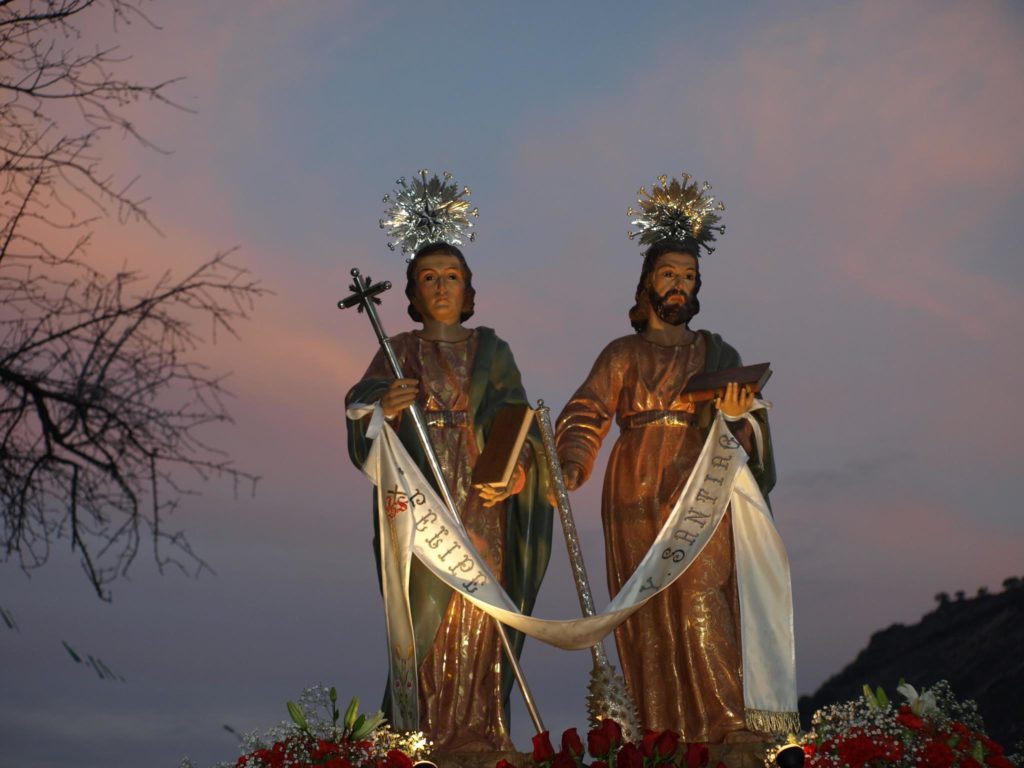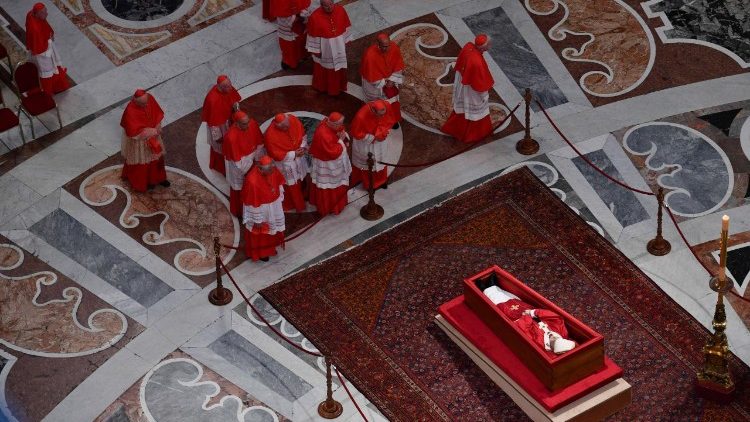Saint Philip and Santiago: Witnesses of yesterday, examples for today
Their relics were found together

Priest Gonzalo Martín shares with Exaudi readers this article entitled “Witnesses of yesterday, examples for today”, about the figure of Saints Philip and Saint Santiago, whose feast day is celebrated today, May 3.
***
With the reform of the Liturgical Calendar, the feast of the apostles Philip and Santiago began to be celebrated on May 3, not because they were apostles, but because tradition tells us that their relics were found together and that they were taken to the Roman Church of the “Twelve Apostles”, the current reason for its celebration on the same day.
While it is true that there is little data and some of it is confusing, based on what appears in the gospels we can say almost with certainty that both saints belonged to the group of disciples of John the Baptist, and that both were called by the Lord and belonged to the group of the twelve apostles.
Philip
Everyone agrees that Philip was a native of Bethsaida, just like Peter and Andrew. And he is known in the first place for having invited Nathanael (probably Bartholomew) to meet Jesus. He was persevering in the invitation because Nathanael’s first response was not very encouraging. “Can something good come from Nazareth?” (Jn 1,45). But Philip was not discouraged and insisted to verify it with his own eyes: “Come and see” (Jn 1:46). This makes it clear to us that he was a disciple convinced of whom the Lord was, and how he invited us to meet Jesus and be part of the new disciples. And this is one of the characteristics of this apostle: his perseverance in testimony.
His intervention in the multiplication of the loaves and fishes is also widely referred to and remembered, where Jesus addresses him to question him about the food, and we hear, through Philip’s mouth, the reality of the situation and the closeness to the Lord: “There is only someone who has two fish and five loaves, but not even 200 denarii would be enough to feed everyone” (Jn 6:7). He is an apostle who lives from reality and from what is practical. And, this same thing, leads him to be an apostle who is continually in dialogue and bringing some Greeks closer to Jesus. Example for us of how our task and mission is to be intermediaries between man and Jesus Christ.
The last we know of Philip is the question he asked Jesus at the Last Supper to show him the Father, as well as Jesus’ great question and reflection: “I have been with you for so long, and you do not know me, Philip? Whoever sees me sees the Father. How do you say to me, then, ‘show us the Father’? Don’t you believe that I am in the Father and the Father is in Me? (…) Believe me: I am in the Father and the Father is in Me” (Jn 14, 9-11).
It is said (witnessed by Clement of Alexandria) that he died crucified, face down, during the Domintian persecution, around the year 96.
Santiago the Lesser, son of Alpheus
Santiago the Lesser, as he is known, considered the “relative of Jesus,” had a preeminent role in the Church of Jerusalem, being its first bishop, and the epistle that bears his name is attributed to him. At the Council held in that city, he affirmed along with the other participants that pagans could be welcomed into the Church without the need for circumcision (Acts 15:13).
We know about him that he was from Cana of Galilee, his name appears a lot in the letter of the Acts of the Apostles. He is assigned the first of the Catholic Letters of the Bible, so called because they were addressed not to one, but to several Churches. In it, he invited Christians to have a living faith, which had to be translated into works, and specifically in works towards the poorest and most disadvantaged, such as, at that time, orphans and widows. He also encourages prayer, asking for the gift of wisdom that helps us understand the true values of life.
Santiago the Lesser, to distinguish him from John’s brother, developed an intense evangelizing activity and tradition presents him as a very austere apostle, with great demands on himself, a man of prayer (it is said that he grew calluses on his knees). The people considered him a holy man, and called him “the intercessor for the people.” He died a martyr in Jerusalem around the year 62, some say that he was stoned and others that he was thrown from the top of the temple.
The famous phrase: “God willing”, which we use with some frequency, has its origin in the letter of Santiago (Santiago 4:15) and teaches us to always be ready to renounce our own plans to follow the Lord more closely. , trusting that He knows what is best for us. One of the fundamental attitudes that crowned the life of this apostle.
The feast of these two great apostles, great saints, invites us to live very close to Jesus, questioning others, to encounter the Lord and to live from the will of God, from a prayer made concrete in life, with works, in favor of others.
Related

The Perspectivas del Trabajo Foundation is founded with the aim of promoting virtues for professional development
Exaudi Staff
25 April, 2025
2 min

“We have experienced a brilliant pontificate that has touched the hearts of believers and non-believers alike”
Exaudi Staff
23 April, 2025
6 min

Reflection by Bishop Enrique Díaz: Alleluia, alleluia
Enrique Díaz
20 April, 2025
5 min

Christ is Risen! Alleluia! Commentary by Fr. Jorge Miró
Jorge Miró
20 April, 2025
3 min
 (EN)
(EN)
 (ES)
(ES)
 (IT)
(IT)

